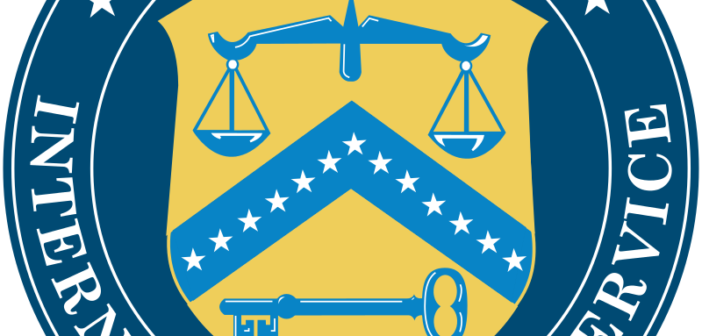By: Tamali Smith
“To who much is given, much is required.”–John F. Kennedy

Credit: Wikimedia Commons
Taxes are the most hated thing on anyone’s list. Imagine, after a very long work week, the hours you have expelled, the vacation that you wish you could enjoy, even the time spent working, you could have used for some well-needed rest, only to start another work process of calculating how much taxes will come out of your weekly pay. It is one of the most frustrating things to feel very accomplished with the hours you have worked, only for bits and pieces to be subtracted by the government. One might say why do I even need to pay taxes? How is this benefiting me? Truth be told, it benefits everyone when we pay our taxes even though we may not even in our lifetime experience the full-on effect of our tax dollars. For example, an individual will pay for life insurance and never benefit from it, but one of the most important things is that others benefit.
For many lower and middle-class individuals who are earning just an average amount of money and can take care of the bills and might have a few dollars of disposable income, often argue that their taxes could be a lot less. They often plead that the government should have mercy and cut their taxes. Small businesses including startups as well, also have the same agenda. These set of individuals also believe that the rich are supposed to pay more taxes since they can afford it. However, is that a fair way to look at the situation? Should we ask more of an individual who has it? Most certainly, people with more resources should become a responsible steward. Maybe imposing more taxes on the wealthy could assist in income inequality, fix our roads, provide food and help in education such as scholarships.
Should rich people pay more taxes? According to qz.com, “It is one of the great questions of public policy, and one that economists typically deflect. Historically, economists answer that it is not for them to say and that economics is only concerned with efficiency and redistribution. But rapidly rising inequality in countries across the world has prompted some economists to weigh in.” Also, the article states that economist John Hatgioannides of City University in London argues that it is “high time to put managing inequality on an equal footing with goals like increasing GDP, managing inflation and restraining unemployment.” Their position is based on the belief that rising inequality is a threat to liberty and capitalism because it leads to too much power in the hands of a small number of people. In essence, the rich are benefiting the most from income inequality while the poor suffer even more and is desperately in need of a tax break. Therefore, if the government were to redistribute income, it would help to improve income inequality which will, in turn, help the Gross domestic product to be positive for the country. However, how does this directly benefit the hardworking citizens of America?
According to qz.com, other economic sources from Brookings Institute, laments on the fact that increasing the level of taxes that the rich should pay, do not have a long-term or lasting effect. Therefore, not many persons would feel the effect of this. Taxes will still be put into the main things such as roads, scholarships, health and defense. The same persons who gave more taxes would benefit most from these things. A few persons in the middle class would experience a small effect; however, that still does not help the lower class so that they or their children might have a fighting chance at being productive and emerge from the poverty line. According to soapboxie.com, one positive impact on making the rich pay more for taxes is so they can pay for education, defense, health and social security. In other words, instead of bleeding ordinary civilians of their tax dollars, acquiring higher income taxes from the rich would assist the country. However, charging more taxes for rich people will have a worse impact which is migration. Not only the migration of persons, but the migration of businesses and ideas will also have a negative effect on society. Therefore, imposing more tax on the rich will cause a brain drain as they will seek to live in countries where taxes are much lower. Another negative impact will be that there will be fewer investments in the country as the rich will try to stay at a certain level so as not to pay more taxes. The middle-class and lower-class individuals will become complacent so as not to pay more taxes. This will also cause some sort of resentment as the rich will not like the fact that they are paying more because they are earning more.
So, what could be a possible solution? There is absolutely nothing wrong with the current system of how taxes are paid by social status. Instead of focusing on paying more taxes or fewer taxes, we could create a mechanism where the rich could help society a little more. Instead of focusing on the country, why not focus on the people that make up the country? Instead of allowing businesses to do what they want with the money such as charity, we could create a system where the money or the donations go to who deserves it. There are a lot of persons in poverty that cannot afford food, clothing and shelter. There should be a budgeted amount from just the persons who are wealthy to pool their money to help those persons in need. What about our education system? There are students who cannot afford a college education. There should be a budgeted amount just for those persons, so they have a fighting chance to be successful and to give back. The same goes for health care. The budgeted money would be given by the wealthy and overseen by the government. However, the government should not be allowed to spend this money on anything that has to do with the progression of the country itself but instead, given to the people. Instead of the country benefiting, society is benefiting, why not touch the hearts of the individuals who can be directly impacted by this? The wealthy can choose how they want to spend their money instead of putting it in taxes. As a responsible steward, we have more resources and are tasked with helping those in need. With this, citizens would be much happier, they would be able to help themselves better and in turn, help others. This will in turn help to build the economy, lessen income inequality and increase our GDP in the long run. As John F. Kennedy says, “ask not what your country can do for you, ask what you can do for your country.”





